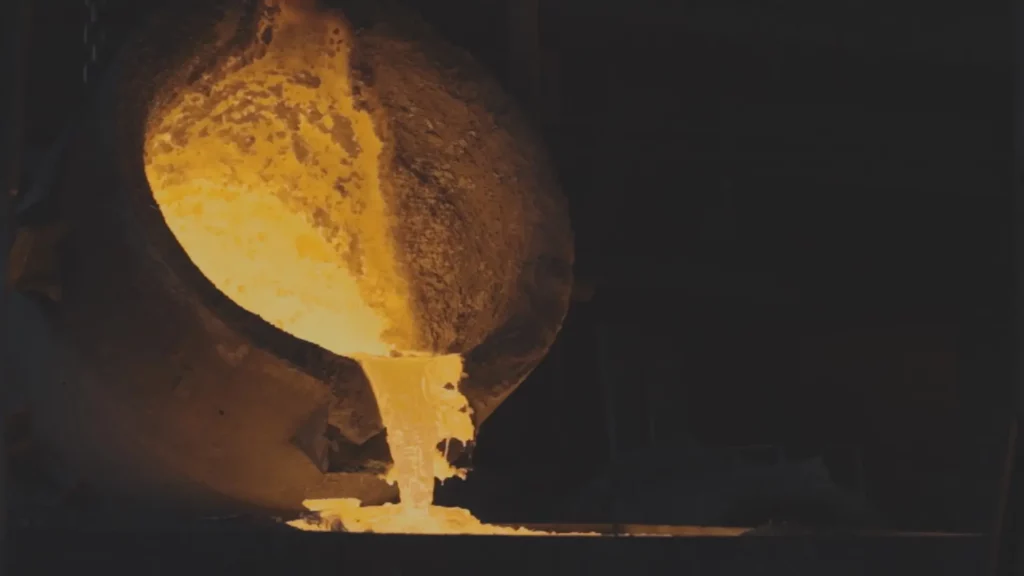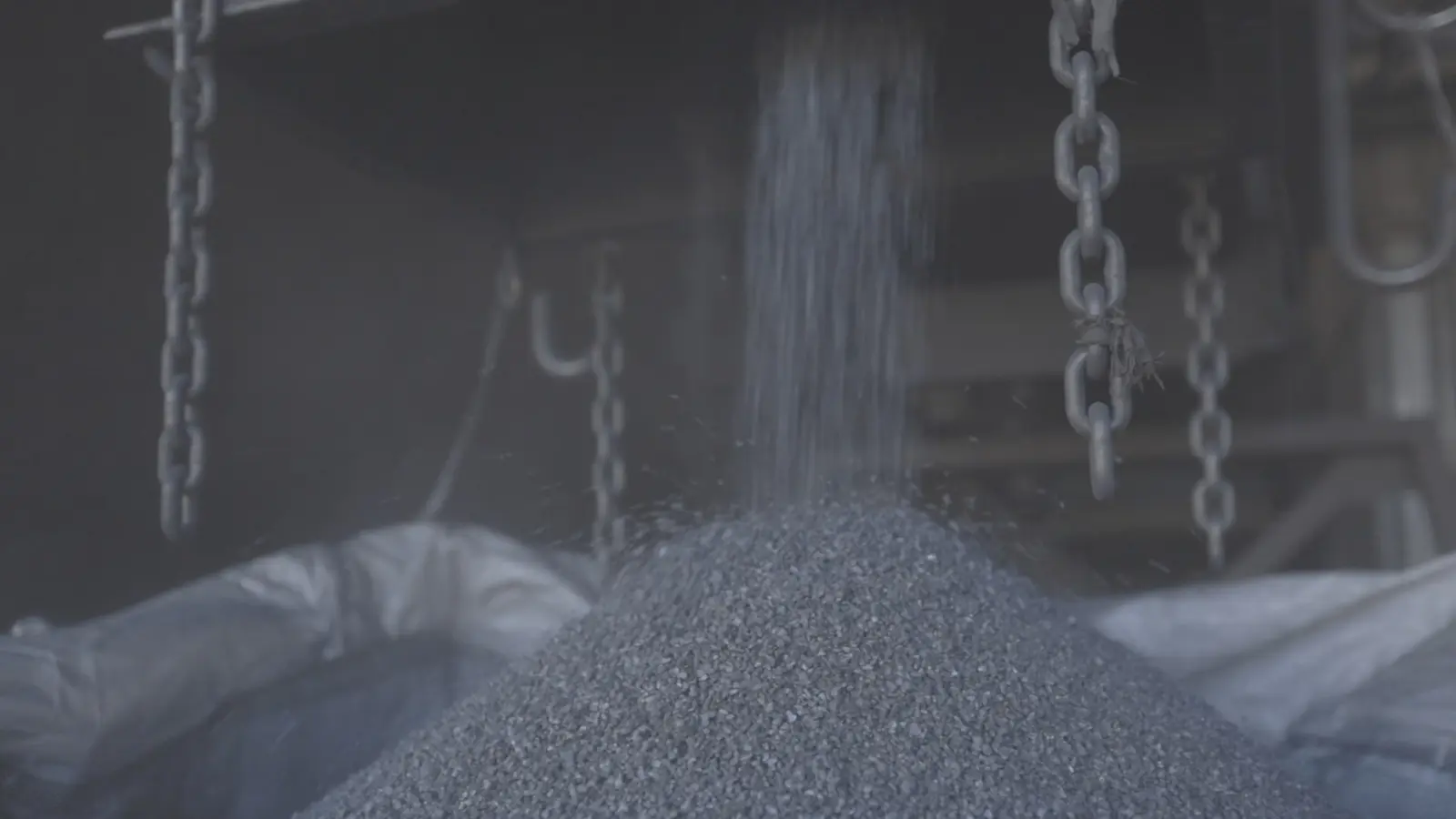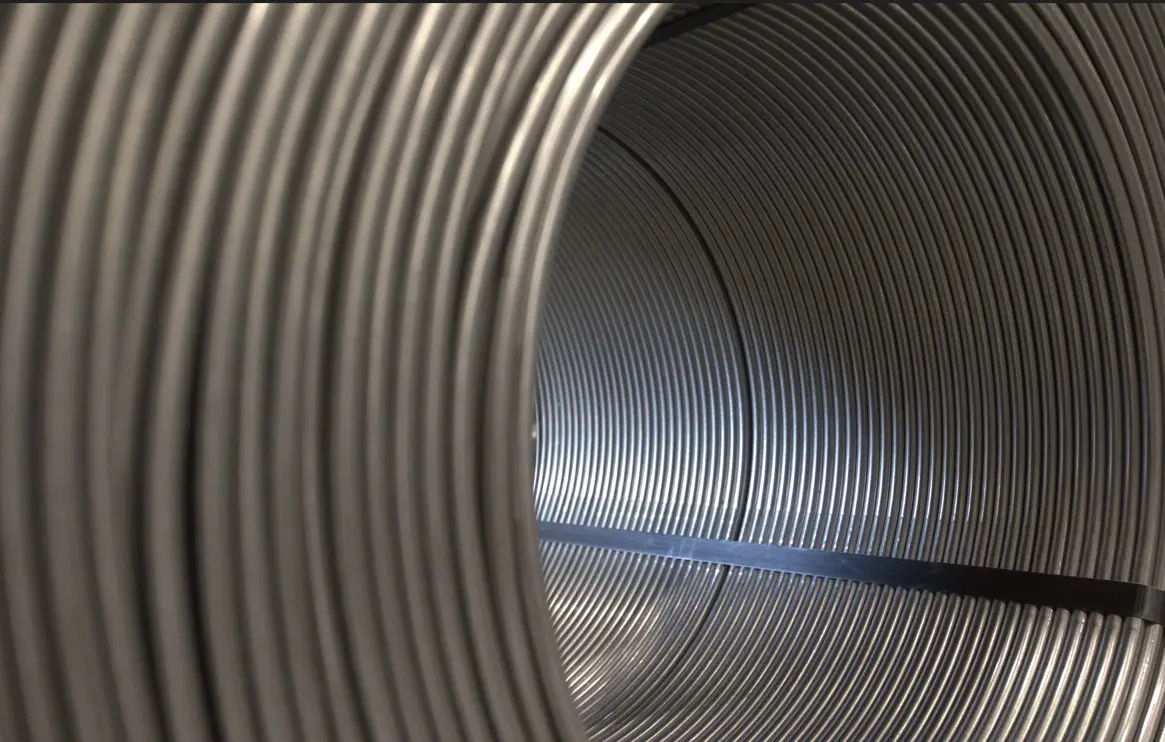


Nodular cast iron stands out from other types of cast iron due to the process of nodularization, which involves modifying the morphology of graphite, resulting in its precipitation and growth into a spheroidal shape. This transformation is achieved through the addition of elements such as magnesium, calcium and rare earths, known for their nodularizing effects.
The RIMA Group offers the market Ferro Silicon Magnesium Alloys, known as RIMAlloy, which have various compositions and wide applicability. As the world's only producer of nodularizers with its own primary magnesium production, RIMAlloy assures customers the use of a high-performance nodularizer, resulting in an adequate nodule count and high yield rates. This contributes to effective nodularization and a final product with the desired mechanical properties.
Since RIMAlloy uses high purity magnesium, with low magnesium and aluminum oxide contents, the yield rate of the magnesium present in the alloy during nodularization is high, in addition to minimizing the occurrence of defects, one of the causes of which can be the presence of impurities.
Thus, properties such as machinability can be guaranteed to nodular cast iron, helping it to be used in the automotive, machinery, tooling, construction, piping, energy and other sectors.
Discover the main RIMAlloy products on the market

Inoculation is an essential process in the production of both Nodular Cast Iron and Grey Cast Iron. It is defined as a procedure in which the active elements present in the inoculant form stable oxides and sulfides, which act as nuclei during graphite growth during solidification.
The RIMA Group develops and produces inoculants with different specifications, customized according to the specific needs of each customer. This variety of compositions allows the final product to be customized and used in a wide range of foundries, guaranteeing effective inoculation, and consequently, a final product with the desired properties. These inoculants contain elements such as Calcium, Barium, Zirconium, Aluminum, Rare Earths, Strontium and Bismuth.
RIMA Inoculant, known as “InoRIMA”, has a variety of compositions for different applications. In our technical-commercial department, each process is analyzed and the best inoculant for the process and the end product is chosen. For example, InoBa is recommended for the production of Nodular and Grey Cast Iron in larger section parts, since the Barium present in the inoculant is responsible for a good "fading" , which ensures effective inoculation in this case and consequently increases the ductility of the final product. For parts with thinner sections, InoCe is recommended.
In addition to the inoculants for Nodular Cast Iron, RIMA also produces inoculants that can be used in both Nodular and Grey Cast Iron, and still produce an effective inoculation, so that the final product have the necessary characteristics.
This way, the RIMA Group is able to deliver a product to the customer that meets the most diverse specifications, taking into consideration the quality and homogeneity of the product and the efficiency of its use. This is so that the cast iron obtained at the end of the process can play its role in the various sectors of the industry.
Discover the main InoRIMA products on the market
Foundry Alloys Cored Wire is a type of metal tube filled with ferroalloys used in iron casting to introduce alloying elements, nodulizing agents, and inoculants into molten iron.
The use of Cored Wire offers several advantages over other addition methods. It allows for more precise control of the amount of additive added to the molten metal, resulting in a more consistent composition. In addition, the use of Cored Wire reduces melting time and increases process efficiency due to the rapid dissolution of the additives.

